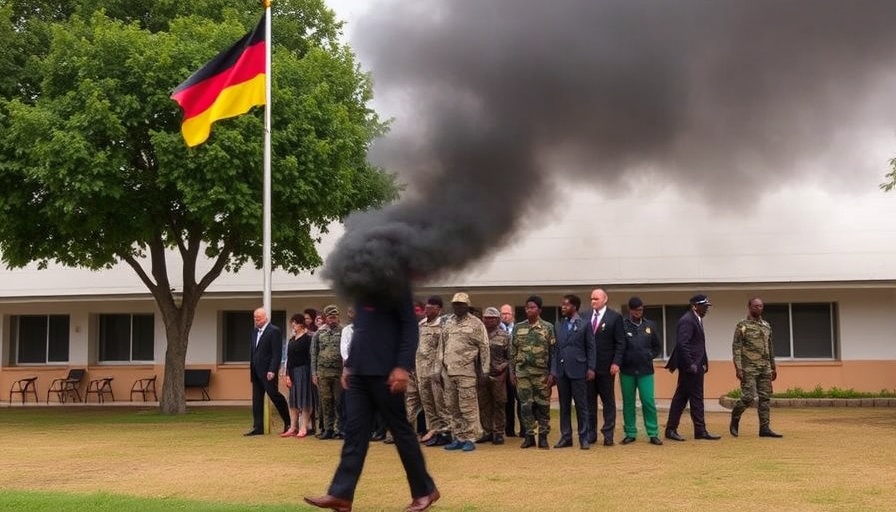
Germany's Strategic Withdrawal: A Political Statement
In a significant move reflecting escalating tensions in South Sudan, Germany has temporarily closed its embassy in Juba, marking a critical juncture in the region’s tenuous peace. The German foreign ministry’s announcement comes amid rising hostilities following President Salva Kiir’s dismissal of the Upper Nile state governor, a decision perceived as a catalyst for renewed clashes between government forces and ethnic militias aligned with First Vice President Riek Machar.
The Threat of Civil War: Lessons from History
South Sudan stands at a pivotal moment, with its leadership under scrutiny as fears mount that the country could spiral back into civil war, reminiscent of the conflicts that plagued the nation shortly after its independence in 2011. Understanding the historical implications of such a move is crucial; prior conflicts devastated the nation’s infrastructure and displaced millions. The international community now watches closely as Germany, alongside the UN peacekeeping mission’s chief Nicholas Haysom, warns of a potential relapse into violence.
Political Dynamics: Who Holds the Power?
The internal power struggles between Kiir and Machar are not just political maneuvers but reflect deep-rooted ethnic tensions that complicate governance. The ongoing tribal divisions threaten the integrity of peace agreements aimed at stabilizing South Sudan. With the stakes so high, the implications of these leaders’ decisions extend far beyond the borders of South Sudan, affecting regional stability and investment climates in East Africa.
A Call for Accountability and a Boost to Diplomacy
Germany’s embassy closure serves as a poignant reminder of the responsibility leaders hold over their citizens' well-being. As articulated by the German foreign ministry, there is a pressing need for Kiir and Machar to uphold their commitments and halt the violence, which could have devastating consequences not only for South Sudan but also for foreign investors and diplomatic relations across the continent.
What Lies Ahead for South Sudan?
As the situation unfolds, the global economic gaze will sharpen on South Sudan’s political landscape. The potential for conflict can deter investment, destabilizing not just South Sudan’s economy but also impacting trade relations across Africa.
For business leaders and policymakers, understanding the socio-political environment in South Sudan is crucial for evaluating risks and opportunities in the region. Continuous diplomatic engagement and strategic investments will be key in navigating the complexities of the African geopolitical landscape, particularly as these tensions develop.
In conclusion, the future of South Sudan remains uncertain, but the international community's response will play an equally vital role in shaping the region’s trajectory. Investors and policymakers must remain informed and adaptable in these rapidly changing dynamics.
 Add Row
Add Row  Add
Add 


 Add Row
Add Row  Add
Add 

Write A Comment